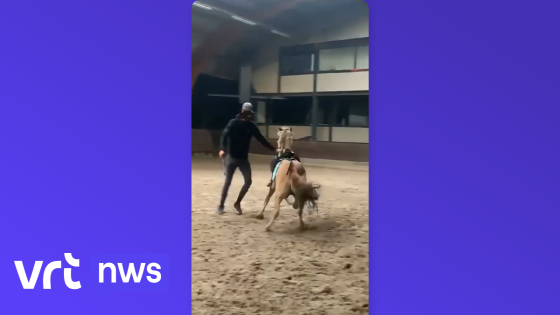A former horse riding instructor and manager of Breughelhoeve in Peer faced serious allegations of neglect and mistreatment of animals. In court on February 4, 2025, she claimed that inspections by animal welfare authorities targeted her unfairly after negative media attention. However, evidence showed ongoing issues with the care of horses at the facility.
- Former stable owner appeared in court
- Animal welfare inspection revealed neglect issues
- Follow-up inspection showed no improvement
- Accused claims long experience with horses
- Defense argues reports do not reflect reality
- No longer owns horses, only a dog
Belgian Horse Riding Instructor Faces Legal Action for Animal Neglect
What happens when a beloved pastime turns into a legal nightmare? The case against the former Breughelhoeve manager highlights serious concerns about animal welfare standards in Belgium‘s equestrian community.
The Ongoing Struggles of Animal Welfare in Equestrian Facilities
The situation surrounding Breughelhoeve reveals troubling patterns regarding how equestrian facilities manage their animals. During inspections, numerous horses were found to have neglected hooves and skin problems. The conditions were so dire that even basic needs like food and water were insufficient.
- Two emaciated horses aged 23 and 27 were present during recent checks.
- The former manager insists she followed veterinary advice but has ceased operations entirely.
- The case underscores the importance of regular inspections for animal welfare compliance.
- This incident could influence similar regulations in other countries, including the US.
Understanding Animal Welfare Regulations: What Can Be Done?
Animal welfare regulations vary significantly across countries. In Belgium, strict laws are intended to protect animals from neglect. However, enforcement can be inconsistent. This case serves as a reminder that more robust systems may be necessary to ensure compliance with these laws globally.
The Role of Public Awareness in Animal Care
Public scrutiny plays a crucial role in improving animal care standards. Increased awareness can lead to better reporting practices and more rigorous inspections. How can communities come together to advocate for better treatment of animals?
Your Responsibility: Advocating for Animal Rights
You can make a difference! By supporting organizations dedicated to animal rights or reporting suspected neglect, you contribute to creating a safer environment for all creatures. Are you ready to take action?









![[2025-02-02] Crapo Announces Executive Session to Consider HHS Secretary Nomination](https://news.faharas.net/wp-content/uploads/2025/02/Crapo-Calls-for-Urgent-Executive-Session-to-Evaluate-HHS-Secretary-560x315.jpg)























